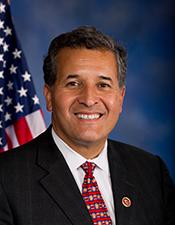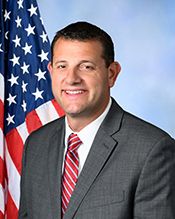0
Frederick Douglass Trafficking Victims Prevention and Protection Reauthorization Act of 2021
12/31/2022, 9:00 AM
Summary of Bill HR 5150
The main provisions of the bill include increasing funding for programs that support victims of human trafficking, improving coordination between federal agencies and law enforcement to better identify and prosecute traffickers, and enhancing prevention efforts to reduce the prevalence of trafficking in vulnerable communities.
Additionally, the bill includes measures to enhance training for law enforcement and service providers on how to effectively respond to human trafficking cases, as well as provisions to improve data collection and reporting on trafficking trends. Overall, the Frederick Douglass Trafficking Victims Prevention and Protection Reauthorization Act of 2021 aims to strengthen the United States' response to human trafficking and provide better support for victims of this heinous crime.
Congressional Summary of HR 5150
Frederick Douglass Trafficking Victims Prevention and Protection Reauthorization Act of 2021
This bill reauthorizes through FY2026 and revises programs and activities to support survivors of human trafficking and prevent such trafficking domestically and abroad.
The bill expands and authorizes programs for survivors, including a program to prevent re-exploitation. It also extends through FY2026 a special assessment on certain persons convicted of a human trafficking offense, which funds programs for human-trafficking survivors. Additionally, the bill provides privacy and other protections for survivors, including specified financial protections and protections against retaliation for survivors who pursue civil claims against a perpetrator. The bill also allows courts to reduce sentences for certain individuals who commit human trafficking crimes as minors.
To prevent trafficking domestically, federal departments must incorporate anti-trafficking efforts into contracting activities and personnel policies, and the bill supports private sector efforts to address human trafficking in its policies and services. Furthermore, the bill supports the identification, investigation, and prosecution of human trafficking crimes, with an expanded focus on forced labor.
To prevent trafficking globally, the bill prohibits access to a trade program for developing countries and otherwise restricts development assistance for countries that fail to meet minimum standards for eliminating trafficking. It also changes the criteria for determining whether a country has met applicable standards. In addition, the bill authorizes sanctions on persons convicted of severe forms of trafficking and requires integration of counter-trafficking activities into foreign assistance programs.
The bill also requires reporting by the Government Accountability Office, federal agencies, and states concerning human trafficking.





